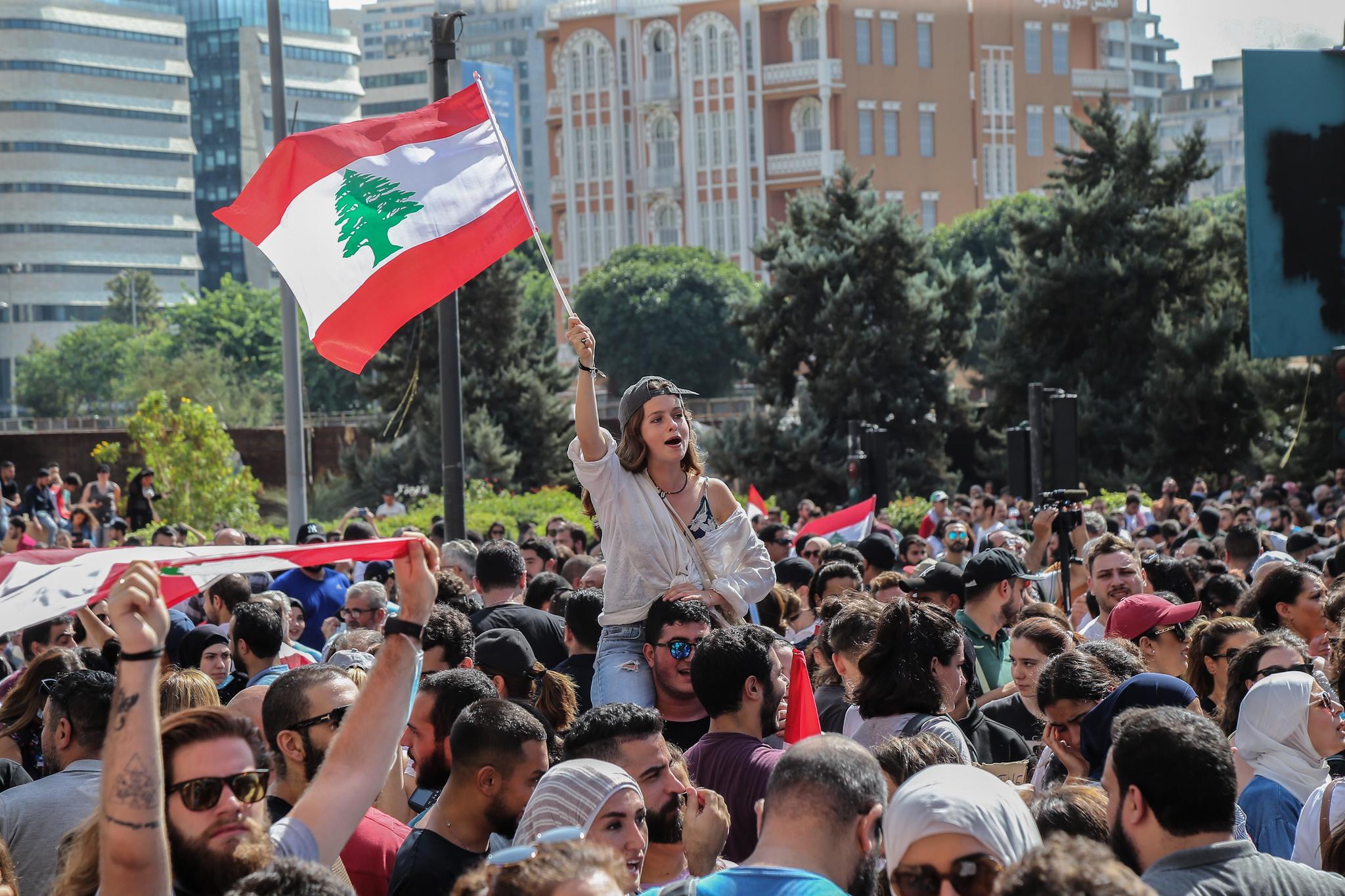- Crisis: Lebanon, a country at the limit
They have baptized it as "the WhatsApp revolution". Tens of thousands of outraged protesters have taken to the streets in various cities in Lebanon , blocked roads and burned tires this Friday, to demand the resignation of the Government in full. They accuse the political elite of plundering the country and leading it to economic bankruptcy. Popular anger erupted on Thursday when authorities announced the imposition of a fee on instant messages offered by applications such as WhatsApp.
The protests soon overflowed the streets of the main cities of the country, forcing the Minister of Telecommunications to back down to the extent that he intended to charge 18 cents a day for voice calls via the Internet . Protesters blocked access to the capital and came to concentrate at the government headquarters in Beirut. They also surrounded the presidential palace, in Baabda, just outside the capital. The police acted to disperse the concentrations, throwing tear gas. Two people died from smoke inhalation.
Since dawn, this Friday, the situation remains critical. These are the most massive demonstrations since 2015, since they have exploded throughout the country and they participate citizens of all confessions and ideologies . No political or sectarian party has been spared the criticism of the Lebanese. Protesters chant slogans against Prime Minister Saad Hariri and carry banners calling for the fall of the Government. Once again, the famous slogan of the Arab Spring has been the most heard: "The people want the regime to fall."
There have also been attacks on the offices of the parties participating in the Unity Government, from the influential Shiite Hezbollah (the only one with an armed arm) to the Amal movement (led by the President of Parliament, Nabih Berri). The president, Michel Aoun, has not even escaped the pressure. In Lebanon, the law that sustains the fragile balance between religious denominations establishes that the president is a Christian; the Prime Minister, Sunni and the President of Parliament, Shiite.
Protests are called for this afternoon-night in the center of Beirut. Banks, schools, universities and public institutions remain closed Friday . Many roads are blocked by barricades of tires burning in the capital and in various cities throughout the country of the cedars. The Beirut airport road has been cut.
The prime minister has been forced to suspend a meeting of his Cabinet in which he was going to discuss the draft of the 2020 budgets and will make an intervention before the nation scheduled for 18.00 (one hour less in Spain). The leader of the Lebanese Forces (Maronite Christian) party, the respected Samir Geagea , has called on the Government to resign. "The best that Prime Minister Saad Hariri can offer in these difficult and critical moments is the resignation of his government to allow the formation of a totally different Executive that can lead the economic renaissance that the country needs," he said in a Tweet. The Druze leader, Walid Jumblatt, has also demanded the resignation of the Hariri Cabinet.
Both Jumblatt's and Geagea's parties participate in the current government, formed this January after nine months of hard negotiations. The Sunni leader Saad Hariri then forged a coalition of forces that included Hezbollah. The prime minister promised that he would undertake the economic reforms necessary to straighten the Lebanese economy , in free fall.
According to the criteria of The Trust Project
Know more- World
International Moreno Moreno leaves Quito in the face of indigenous pressure and accuses Correa and Maduro of attempted coup
SpainPedro Sánchez describes the measures of the United States as "atropello tariff" and promises to defend Spain
General Elections Sanchez squeezes the 'working economy' to put it at the service of its electoral plans

